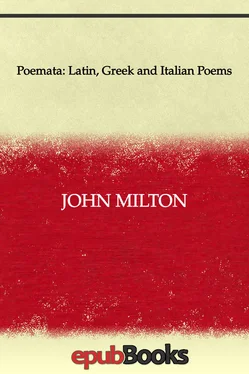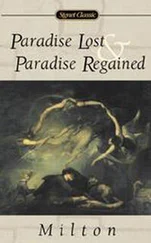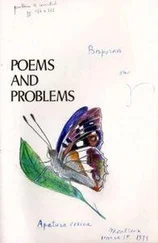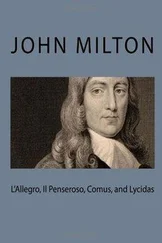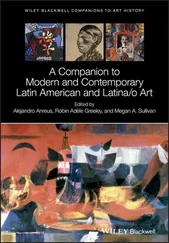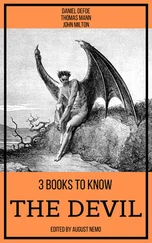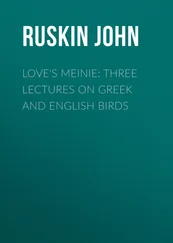The virgin multitude that daily meets,
Radiant with gold and beauty, in thy streets,
Outnumbers all her train of starry fires
With which Diana gilds thy lofty spires.
Fame says, that wafted hither by her doves,
With all her host of quiver–bearing Loves,
Venus, prefering Paphian scenes no more,
Has fix'd her empire on thy nobler shore.
But lest the sightless boy inforce my stay,
I leave these happy walls, while yet I may.
Immortal Moly [20] The magical plant by which Odysseus was enabled to escape from Circe. See Homer (Odyssey, x. 370–375).
shall secure my heart
From all the sorc'ry of Circaean art,
And I will e'en repass Cam's reedy pools
To face once more the warfare of the Schools.
Meantime accept this trifle; Rhymes, though few,
Yet such as prove thy friend's remembrance true.
Elegy II
On the Death of the University Beadle at Cambridge. [21] Richard Redding of St. John's College, M.A. He died in October, 1626.
Thee, whose refulgent staff and summons clear,
Minerva's flock longtime was wont t'obey,
Although thyself an herald, famous here,
The last of heralds, Death, has snatch'd away.
He calls on all alike, nor even deigns
To spare the office that himself sustains.
Thy locks were whiter than the plumes display'd
By Leda's paramour [22] The Swan—Jove had turned himself into that bird.
in ancient time,
But thou wast worthy ne'er to have decay'd,
Or, Aeson–like, [23] i.e. Jason, who was restored to youth by his daughter Medea.
to know a second prime,
Worthy for whom some Goddess should have won
New life, oft kneeling to Apollo's son. [24] Esculapius, the god of medicine.
Commission'd to convene with hasty call
The gowned tribes, how graceful wouldst thou stand!
So stood Cyllenius [25] Hermes.
erst in Priam's hall,
Wing–footed messenger of Jove's command,
And so, Eurybates [26] One of the heralds sent to Achilles by Agamemnon.
when he address'd
To Peleus' son Atrides' proud behest.
Dread Queen of sepulchres! whose rig'rous laws
And watchful eyes, run through the realms below,
Oh, oft too adverse to Minerva's cause,
Too often to the Muse not less a foe,
Chose meaner marks, and with more equal aim
Pierce useless drones, earth's burthen and its shame!
Flow, therefore, tears for Him from ev'ry eye,
All ye disciples of the Muses, weep!
Assembling, all, in robes of sable dye,
Around his bier, lament his endless sleep,
And let complaining Elegy rehearse
In every School her sweetest saddest verse.
Elegy III
Anno Aetates 17. [27] i.e. "In my seventeeth year," meaning at the age of sixteen.
On the Death of the Bishop of Winchester. [28] Lancelot Andrewes, Fuller's "peerless prelate."
Silent I sat, dejected, and alone,
Making in thought the public woes my own,
When, first, arose the image in my breast
Of England's sufferings by that scourge, the pest. [29] The plague which ravaged England in 1626.
How death, his fun'ral torch and scythe in hand,
Ent'ring the lordliest mansions of the land,
Has laid the gem–illumin'd palace low,
And level'd tribes of Nobles at a blow.
I, next, deplor'd the famed fraternal pair [30] Prince Christian of Brunswick, and Count Mansfelt. They were brothers in arms and the Protestant champions. They both died in 1626.
Too soon to ashes turn'd and empty air,
The Heroes next, whom snatch'd into the skies
All Belgia saw, and follow'd with her sighs;
But Thee far most I mourn'd, regretted most,
Winton's chief shepherd and her worthiest boast;
Pour'd out in tears I thus complaining said—
Death, next in pow'r to Him who rules the Dead!
Is't not enough that all the woodlands yield
To thy fell force, and ev'ry verdant field,
That lilies, at one noisome blast of thine,
And ev'n the Cyprian Queen's own roses, pine,
That oaks themselves, although the running rill
Suckle their roots, must wither at thy will,
That all the winged nations, even those
Whose heav'n–directed flight the Future shows,
And all the beasts that in dark forests stray,
And all the herds of Proteus [31] Marine creatures. Proteus was the shepherd of the seas.
are thy prey?
Ah envious! arm'd with pow'rs so unconfined
Why stain thy hands with blood of Human kind?
Why take delight, with darts that never roam,
To chase a heav'n–born spirit from her home?
While thus I mourn'd, the star of evening stood,
Now newly ris'n, above the western flood,
And Phoebus from his morning–goal again
Had reach'd the gulphs of the Iberian main.
I wish'd repose, and, on my couch reclined
Took early rest, to night and sleep resign'd,
When—Oh for words to paint what I beheld!
I seem'd to wander in a spacious field,
Where all the champain glow'd with purple light
Like that of sun–rise on the mountain height;
Flow'rs over all the field, of ev'ry hue
That ever Iris wore, luxuriant grew,
Nor Chloris, [32] Flora.
with whom amtrous Zephyrs play,
E'er dress'd Alcinous' gardens [33] See the account of his gardens in the Odyssey.
half so gay.
A silver current, like the Tagus, roll'd
O'er golden sands, but sands of purer gold,
With dewy airs Favonius fann'd the flow'rs,
With airs awaken'd under rosy bow'rs.
Such poets feign, irradiated all o'er
The sun's abode on India's utmost shore.
While I, that splendour and the mingled shade
Of fruitful vines, with wonder fixt survey'd,
At once, with looks that beam'd celestial grace,
The Seer of Winton stood before my face.
His snowy vesture's hem descending low
His golden sandals swept, and pure as snow
New–fallen shone the mitre on his brow.
Where'er he trod, a tremulous sweet sound
Of gladness shook the flow'ry scene around:
Attendant angels clap their starry wings,
The trumpet shakes the sky, all aether rings,
Each chaunts his welcome, folds him to his breast,
And thus a sweeter voice than all the rest.
"Ascend, my son! thy Father's kingdom share,
My son! henceforth be free'd from ev'ry care."
So spake the voice, and at its tender close
With psaltry's sound th'Angelic band arose.
Then night retired, and chased by dawning day
The visionary bliss pass'd all away.
I mourn'd my banish'd sleep with fond concern,
Frequent, to me may dreams like this return.
Elegy IV
Anno Aetates 18.
To My Tutor, Thomas Young, [34] Young was private tutor to Milton before he went to St. Paul's. (Milton's prose letter to Young is included in an appendix below.)
Chaplain of the English Merchants Resident at Hamburg.
Hence, my epistle—skim the Deep—fly o'er
Yon smooth expanse to the Teutonic shore!
Haste—lest a friend should grieve for thy delay—
And the Gods grant that nothing thwart thy way!
Читать дальше
